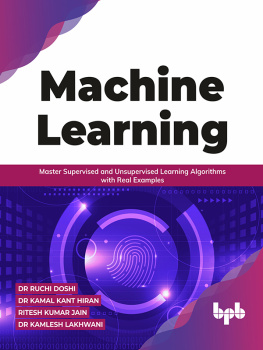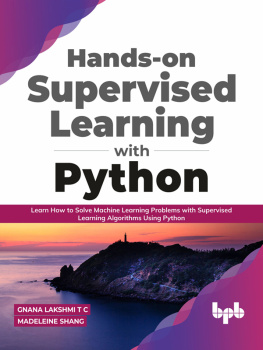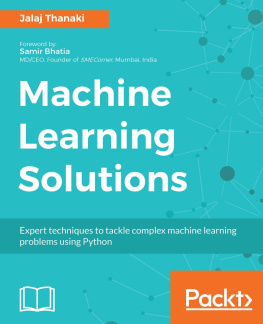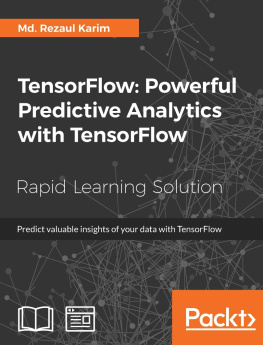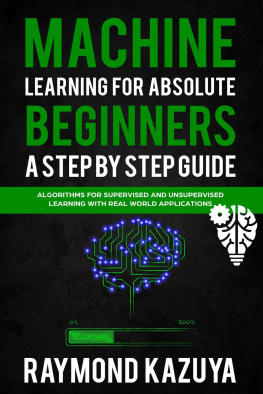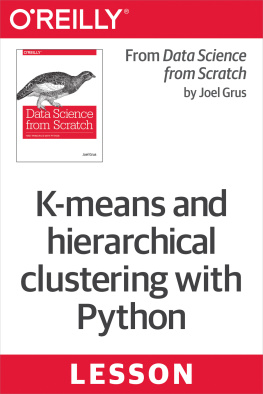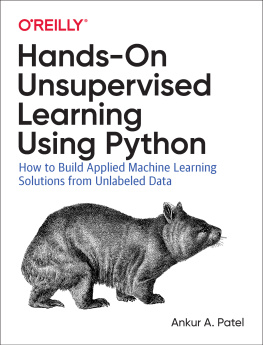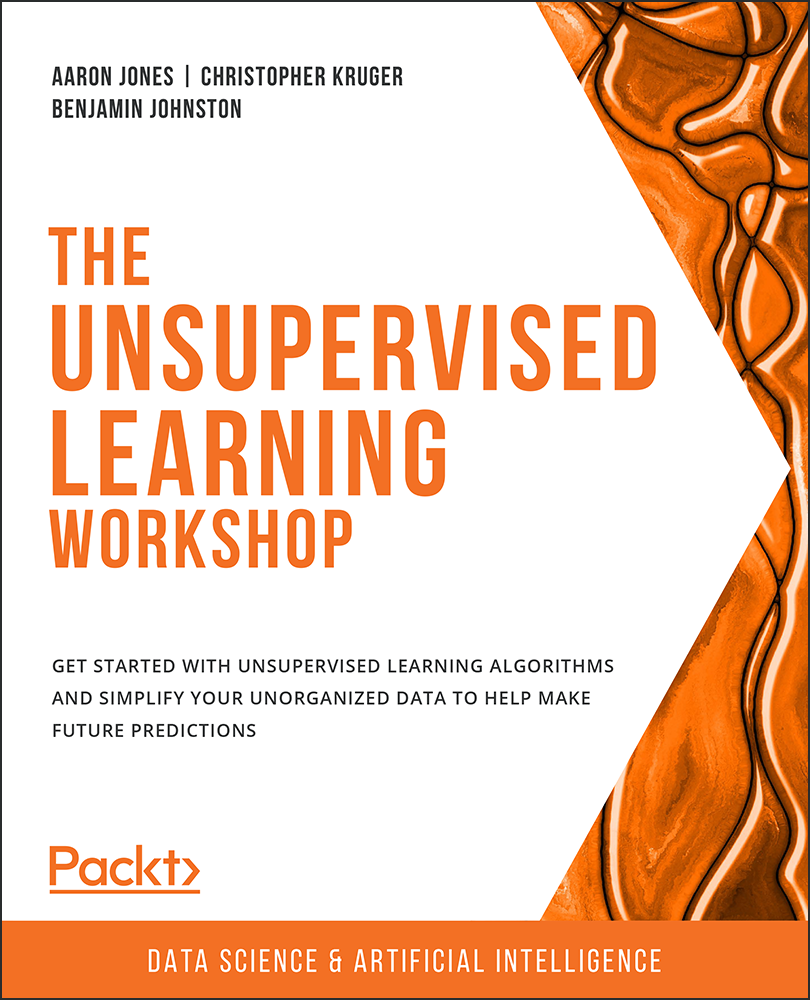Aaron Jones - The Unsupervised Learning Workshop: Get started with unsupervised learning algorithms and simplify your unorganized data to help make future predictions
Here you can read online Aaron Jones - The Unsupervised Learning Workshop: Get started with unsupervised learning algorithms and simplify your unorganized data to help make future predictions full text of the book (entire story) in english for free. Download pdf and epub, get meaning, cover and reviews about this ebook. year: 2020, publisher: Packt Publishing, genre: Home and family. Description of the work, (preface) as well as reviews are available. Best literature library LitArk.com created for fans of good reading and offers a wide selection of genres:
Romance novel
Science fiction
Adventure
Detective
Science
History
Home and family
Prose
Art
Politics
Computer
Non-fiction
Religion
Business
Children
Humor
Choose a favorite category and find really read worthwhile books. Enjoy immersion in the world of imagination, feel the emotions of the characters or learn something new for yourself, make an fascinating discovery.

- Book:The Unsupervised Learning Workshop: Get started with unsupervised learning algorithms and simplify your unorganized data to help make future predictions
- Author:
- Publisher:Packt Publishing
- Genre:
- Year:2020
- Rating:5 / 5
- Favourites:Add to favourites
- Your mark:
The Unsupervised Learning Workshop: Get started with unsupervised learning algorithms and simplify your unorganized data to help make future predictions: summary, description and annotation
We offer to read an annotation, description, summary or preface (depends on what the author of the book "The Unsupervised Learning Workshop: Get started with unsupervised learning algorithms and simplify your unorganized data to help make future predictions" wrote himself). If you haven't found the necessary information about the book — write in the comments, we will try to find it.
Learning how to apply unsupervised algorithms on unlabeled datasets from scratch can be easier than you thought with this beginners workshop, featuring interesting examples and activities
Key Features- Get familiar with the ecosystem of unsupervised algorithms
- Learn interesting methods to simplify large amounts of unorganized data
- Tackle real-world challenges, such as estimating the population density of a geographical area
Do you find it difficult to understand how popular companies like WhatsApp and Amazon find valuable insights from large amounts of unorganized data? The Unsupervised Learning Workshop will give you the confidence to deal with cluttered and unlabeled datasets, using unsupervised algorithms in an easy and interactive manner.
The book starts by introducing the most popular clustering algorithms of unsupervised learning. Youll find out how hierarchical clustering differs from k-means, along with understanding how to apply DBSCAN to highly complex and noisy data. Moving ahead, youll use autoencoders for efficient data encoding.
As you progress, youll use t-SNE models to extract high-dimensional information into a lower dimension for better visualization, in addition to working with topic modeling for implementing natural language processing (NLP). In later chapters, youll find key relationships between customers and businesses using Market Basket Analysis, before going on to use Hotspot Analysis for estimating the population density of an area.
By the end of this book, youll be equipped with the skills you need to apply unsupervised algorithms on cluttered datasets to find useful patterns and insights.
What you will learn- Distinguish between hierarchical clustering and the k-means algorithm
- Understand the process of finding clusters in data
- Grasp interesting techniques to reduce the size of data
- Use autoencoders to decode data
- Extract text from a large collection of documents using topic modeling
- Create a bag-of-words model using the CountVectorizer
If you are a data scientist who is just getting started and want to learn how to implement machine learning algorithms to build predictive models, then this book is for you. To expedite the learning process, a solid understanding of the Python programming language is recommended, as youll be editing classes and functions instead of creating them from scratch.
Table of Contents- Introduction to Clustering
- Hierarchical Clustering
- Neighborhood Approaches and DBSCAN
- Dimensionality Reduction Techniques and PCA
- Autoencoders
- t-Distributed Stochastic Neighbor Embedding
- Topic Modeling
- Market Basket Analysis
- Hotspot Analysis
Aaron Jones: author's other books
Who wrote The Unsupervised Learning Workshop: Get started with unsupervised learning algorithms and simplify your unorganized data to help make future predictions? Find out the surname, the name of the author of the book and a list of all author's works by series.


